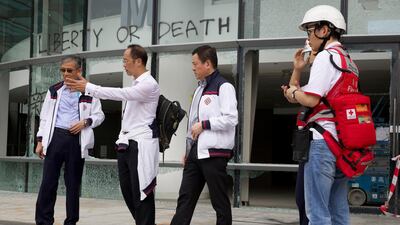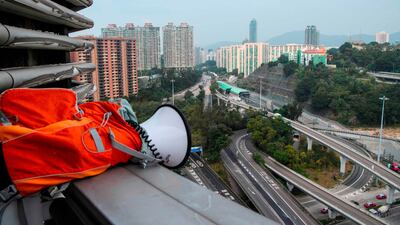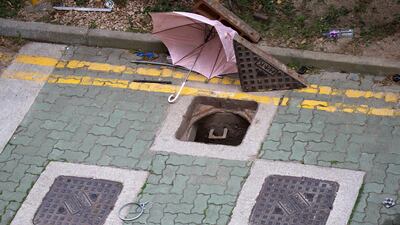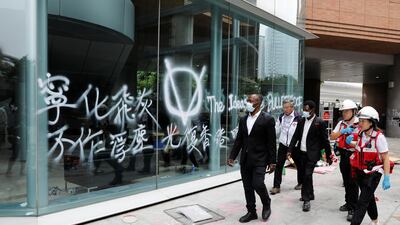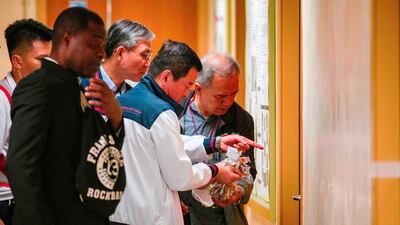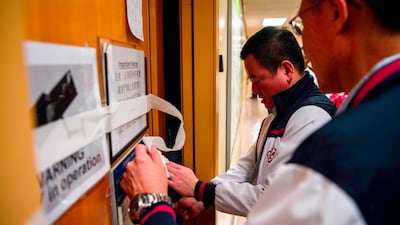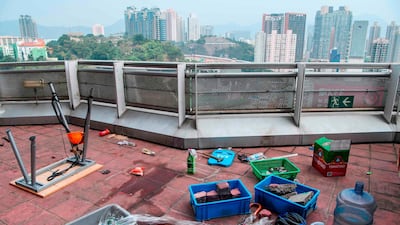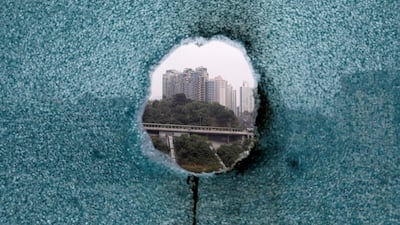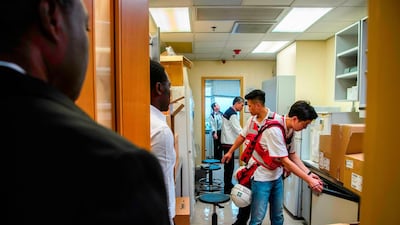A cart of unused Molotov cocktails, staircases blocked with burnt chairs and tables, pedestrian bridges scattered with broken glass and paving stones wrenched out of footpaths – the campus Hong Kong Polytechnic University looks a deserted battle zone.
On November 17 and 18, the university witnessed the most violent clashes between protesters and police that Hong Kong has seen since the beginning of pro-democracy demonstrations in June. More than 1,000 protesters were arrested as police placed the campus under siege. Some made dramatic escapes while a handful, estimated at about two dozen, remain there in hiding.
Flush from victory in Sunday’s local elections, hundreds of pro-democracy activists marched to the campus on Monday evening to bring an end to the siege. They were stopped by the police, who said they would send a team of negotiators and five newly elected district councillors into the campus soon to find the holdouts and coax them to surrender.
During the clashes last week, Molotov cocktails thrown by the protesters set fire to footbridges and main staircases leading to the campus as police fired nearly 1,500 rounds of tear gas and thousands of rubber bullets.
"That was the most scared I've ever been," said A Leung, a protester who escaped. Like others who spoke to The National, he asked to be identified by a pseudonym
“I remember comforting my comrade at the frontline while the fire was raging because he was having a mental breakdown, fearing the police would sweep in,” he said, communicating via Telegram.
Those who remain on campus are hiding deep inside various university buildings, living off the mountains of supplies protesters gathered before the siege.
One of them is Wong, acting president of the students union, who has made it his mission to provide food for the others.

“I don’t know how many people are still here, but I will pick up food supplies from the canteen, put it them plastic bags and then drop them off at various locations on campus,” Wong said.
This is how knows there are others trapped besides him. “Hours later, if I come back and find the bag gone, I would know someone took it,” he said.
“Even if there is only one protester left, I’d still be here to get food for him.”
Sunny, a chef who decided to stay behind in the canteen and cook for the protesters, said there were between 20 and 30 protesters still on campus on Saturday.
“Please save the kids – they are innocent,” he pleaded, almost breaking into tears.
"I have passed my fear phase and now I'm just consulting with some lawyers to make sure I get fair treatment," said Pepe, speaking to The National in the deserted university gym.
On the other side of the police cordon, parents beg police to not hurt their children as they wait for them to come out.
“We am so proud of them and love them so much,” said Vivian and Philip, a couple whose two children were trapped inside.
“We hope they will take care of each other and be safe.”
For some protesters, their parents’ support convinced them to turn themselves in to the police. “My son came out of the campus and surrendered to the police after I persuaded him to,” said Issac, whose son has been detained.
“I believe justice will stand with us,” he said. “Either way, I want him to know that he was fighting for the future of Hong Kong and I cannot be any prouder.”
Not all parents are as supportive, especially those who themselves support the government.
“My parents don’t know I’m here – we haven’t talked in so long,” said Jason, a protester taking temporary shelter in the university library. “My last couple of comrades just surrendered today, but my parents don’t seem to care whether I’m trapped.”
